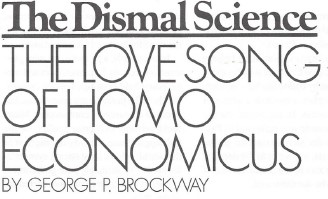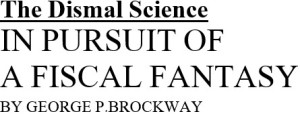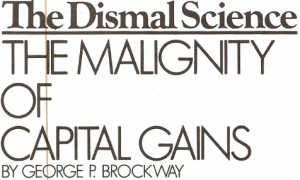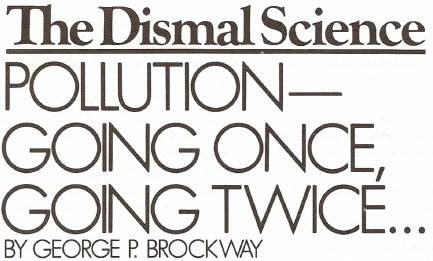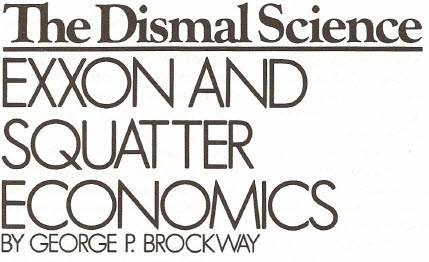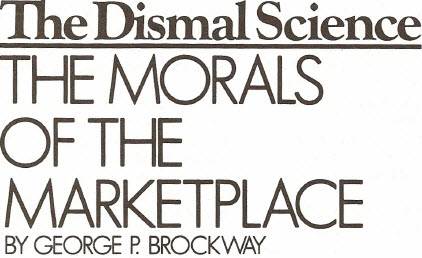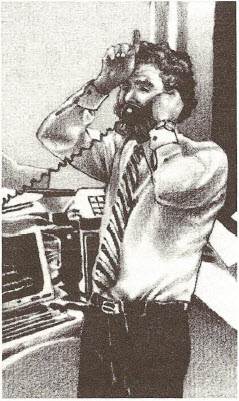By George P. Brockway, originally published March 3, 1999
T.S. ELIOT sang of “Songs[1] that follow like a tedious argument! Of insidious intent! To lead you to an overwhelming question …. ” Economics
sometimes seems like that-tedious as well as dismal. Economics is also very like the next line of The Love Song of J. Alfred Prufrock”: “Oh, do not ask, ‘What is it?”’
For the characteristic economics essay or book lays out-“Like a patient etherized upon a table”-an account of the economy, or some part of it, demonstrating how it works, or doesn’t work. Often the putative truths contained therein are unpleasant, like the iron law of wages in the 19th century or the natural rate of unemployment in the 20th. Nonprofessionals are frequently prompted to ask, not “What is it?” but the truly overwhelming question, “What should we do about it?” Professional economists have tended to brush that question aside. They are, they say, scientists, not humanists; and science concerns what is, not what ought to be.
But there is another reason for the posture of most economists, and that is the problem posed by the first sentence of the last chapter of John Maynard Keynes‘ General Theory of Employment, Interest and Money: “The outstanding faults of the economic society in which we live are its failure to provide for full employment and its arbitrary and inequitable distribution of wealth and income.” One would have to be extraordinarily deficient in empathy for one’s fellow human beings not to recognize the justice and urgency of Keynes’ dictum. One would also have to be exceptionally ignorant of the ways of the world to imagine that the problem will simply solve itself. Indeed, anyone with empathy and knowledge must find it acutely uncomfortable to deny that confronting those “faults” is the special responsibility of economists.
Yet starting with Adam Smith in 1776, the history of modem economics has instead been the story of a search for an automatic polity, a mechanism that, whether it makes all well or not, at least makes everything inexorable. With Smith, of course, it was the invisible hand. With Jeremy Bentham it was the felicific calculus, supposed to operate like Newton’s laws of motion. With Jean-Baptiste Say it was production creating its own demand. With John Stuart Mill it was supply and demand. With Karl Marx it was dialectical materialism. With William S. Jevons, Leon Walras and Carl Menger it was marginal utility. Among our contemporaries, equilibrium is the chosen control-metaphorical with John Hicks, mathematical with Gerard Debreu and Paul Samuelson, quasi-psychological with Frank Hahn and Edmund S. Phelps.
All those I have named are honorable men, as I believe almost every economist to be. I am sure none would dispute the truth of Keynes’ pronouncement. Faced with the enormity of the problem, though, all, with the possible exception of Marx, have found in pseudoscience an excuse for denying the need or ability to do anything substantial, and hence for refusing their responsibility.
The first thing to note about the problem is that originally it was a double pronged affair, but by now the prongs have joined together. In the ancient world, the feudal world and the mercantilist world, you could have full employment along with unconscionable disparities of wealth and income. Perhaps even in Keynes’ day, over half a century ago, it was possible to consider the two great failures of the economy separately. Today, however, we shall not be able to solve unemployment without at the same time solving maldistribution.
An explanation for the intertwining of the two problems was suggested by Joseph A. Schumpeter in an observation of the sort he made so casually and so tellingly. “The capitalist achievement,” he wrote, “does not typically consist in providing more silk stockings for queens but in bringing them within the reach of factory girls in return for steadily decreasing amounts of effort.” The modem economy, unfortunately, may not be quite so good to factory girls as Schumpeter suggests.
The reason lies with the opportunities the wealthy have to dispose of their income. In most cases, their money derives from mass production, but they do not spend much of it on the products of the assembly line. This is not merely a matter of taste. It would be flatly impossible to do so. You can buy a top-of-the-line Mercedes, the archetypal expensive, mass-produced commodity, for about $145,000. If you were a senior officer of a Fortune 500 corporation, or a partner in a major financial house, you could pay cash for a brand-new Mercedes the first of every month, junk it at the end of the month, and still have more money than you and your family could conveniently spend.
Traditionally the wealthy have invested their surplus, a practice generally considered to return it to the producing economy it came from. And, like Prufrock’s Yankee contemporary, Miniver Cheevy, they think they “have reasons” to believe they are doing something good. Theoretically, for example, their investment would make more silk stockings available at lower prices by increasing productivity. But in common with the romantic notions Cheevy holds so dear, the idea is largely spurious.
This is because, regardless of what distinguished economists say, the producing economy is, in general, overcapitalized. As things stand, it could very easily, without investment in another machine or machine tool, increase its output by 15 or 20 per cent. It has that capacity right now. More investment will not lead to greater productivity.
Increased demand would. But Chairman Greenspan still hopes to restrain the “exuberance” of the stock market-in which case its upper middle class “wealth effect” will disappear. And far from trying to stimulate consumption, credit card companies can’t wait to put fear of a new bankruptcy law into their lower-middleclass clients.
These actions reduce the nonwealthy to relying on what they earn by working, and what they earn necessarily falls short of being able to buy what industry produces: Schumpeter’s silk stockings (or their millennial equivalent) become less affordable. The shortfall is equal to the earnings and other withdrawals of the wealthy. Its correction must also come from that source.
LEFT TO THEIR own devices, how do the wealthy spend their money? After buying several Andy Warhols and subscribing to tables at a couple of dozen charity balls, it is all too easy to become frustrated by the attempt to consume one’s income and turn to speculation. So the money the wealthy take out of mass production industry stays out, and the money devoted to speculation becomes a flood.
A “moderate” session of the New York Stock Exchange today sees half again as many shares traded as were thrown on the market in the frenzy of the crash of October 1987. And still there is not enough to meet the demand. Besides the NASDAQ and the Amex and the mercantile exchanges and exchanges abroad (including way stations all over the new global village), there are $85 trillion worth of derivative “products” invented by clever bankers and brokers to facilitate betting on almost anything you can think of. In comparison, numbers running is child’s play.
Also in comparison, trying to make money by operating an enterprise that turns out actual goods and services is a mug’s game. As fortunes are made in speculation, the opportunity cost of productive enterprise rises. To keep those who have invested in industry from selling out, they have to be promised increased profits; and the fashionable way of doing that is for lean and mean companies to become leaner and meaner, thereby narrowing the already narrow market. Where once there was a spreading wage-price spiral, heading upward, the economy has slipped into a constricting lean-mean spiral, heading downward.
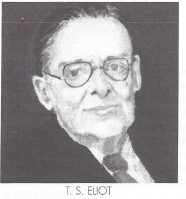 The wealthy are not the only ones contributing to this trend. The middle class is the beneficial owner, through what are called “institutions” (especially mutual funds and pension funds and insurance policies), of between one-third and one half of all the shares on the current exchanges. By being funded rather than treated as current expenses, these institutions soak up purchasing power and weaken aggregate demand. The funds’ speculating deprives the producing economy of efficient financing. The resulting shrinkage of the producing economy raises the rate of unemployment, accelerating the erosion of the middle class the institutions were created to protect, and exacerbating the polarization of society.
The wealthy are not the only ones contributing to this trend. The middle class is the beneficial owner, through what are called “institutions” (especially mutual funds and pension funds and insurance policies), of between one-third and one half of all the shares on the current exchanges. By being funded rather than treated as current expenses, these institutions soak up purchasing power and weaken aggregate demand. The funds’ speculating deprives the producing economy of efficient financing. The resulting shrinkage of the producing economy raises the rate of unemployment, accelerating the erosion of the middle class the institutions were created to protect, and exacerbating the polarization of society.
That is how we are approaching the turn of another century: The nonwealthy are unable to buy the products their industry can produce; industry consequently has fewer opportunities for expansion; the wealthy consequently have fewer opportunities for productive investment; the nonwealthy consequently have fewer job opportunities and more of them become unemployed (“naturally”).
It is easy to convince yourself that looking to the government to fix the situation is hopeless. President Franklin D. Roosevelt couldn’t get a cap on stay-at home incomes even in the midst of World War II, when millions of young men and women (and middle-aged ones, too) were risking their lives for their country. President Richard M. Nixon, despite being re-elected by the second largest percentage of the popular vote yet recorded, couldn’t enlist a Congressional majority for a negative income tax. The current tax law, whose top rate is less than half the top rate of 25 years ago, does not assess even the present top rate against capital gains. And who can imagine the Federal Reserve Board maintaining an interest rate that is either low or steady, let alone both?
Some (if not all) of these things should be done to mitigate the polarization of our society. If they can’t be done in the current political climate, what can economists be expected to do about it? Well, if economists can’t suggest answers, the least they can do is get out of the way. Certainly no solution will succeed if no one has the will to work for it, and certainly those most responsible are the people claiming professional status.
In the meantime, the outstanding “faults” of our economic society, albeit forged into one, are substantially identical with those of Keynes’ day. But the degradation, despair, and (in the words of the late Erik Erikson) negative identity are worse. Will human voices wake us before we drown?
The New Leader
[1] Ed. Well, I’ll be damned. The author, uncharacteristically, has the quote wrong. Eliot wrote of “streets”, not “songs” that follow like a tedious argument ….
